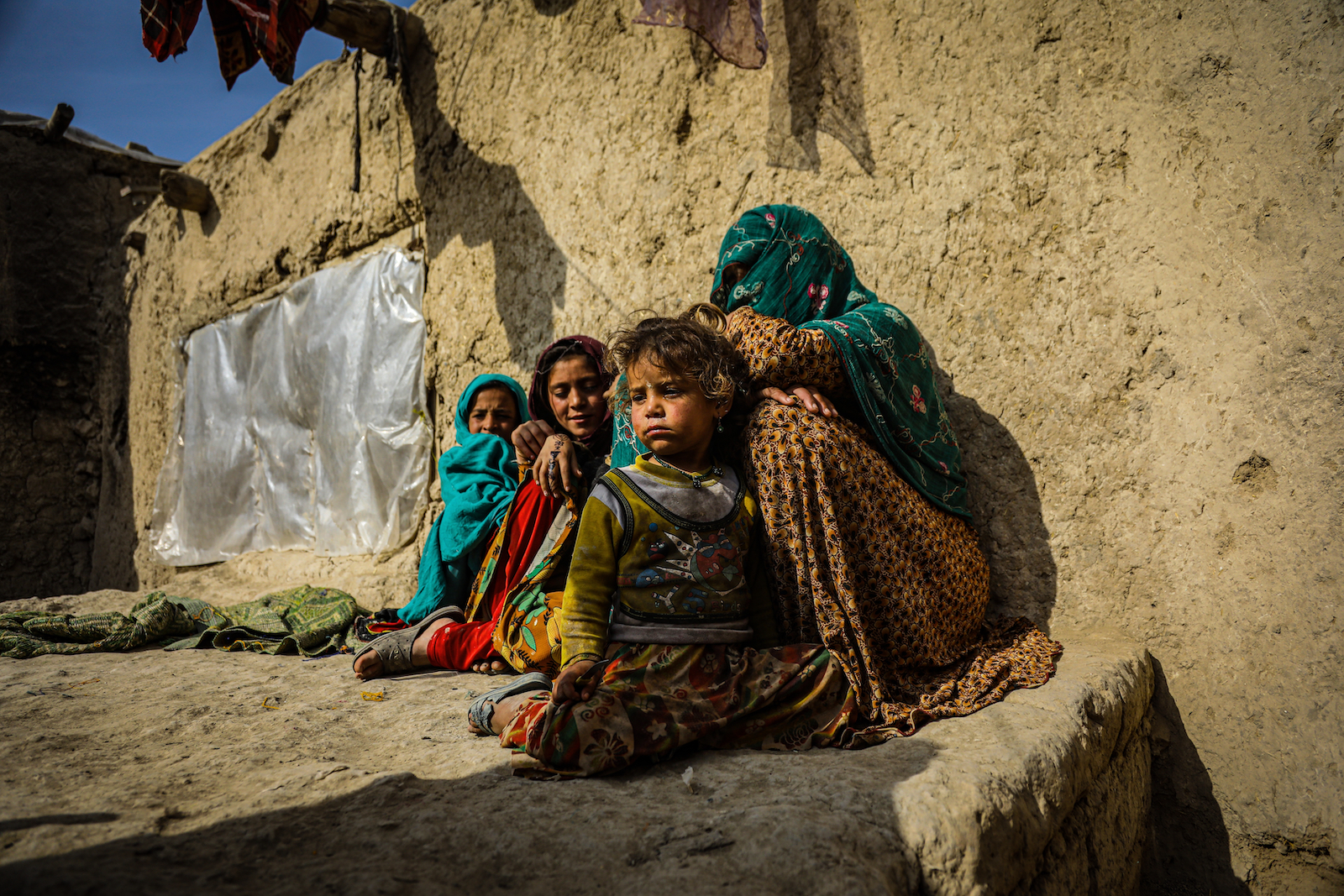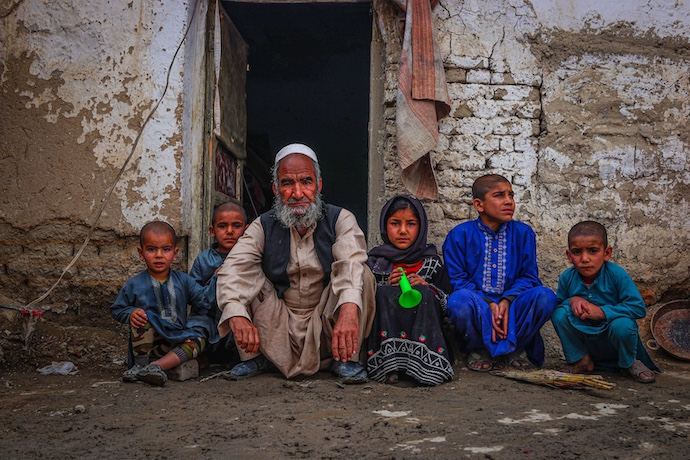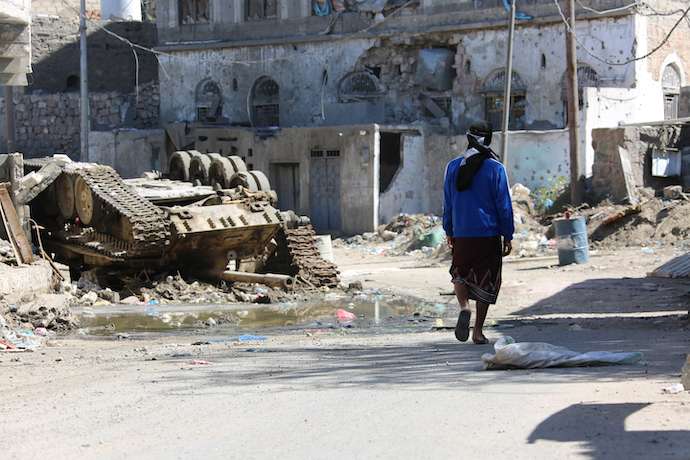
We Should Be Mindful of ‘Economic War Crimes’
Since history has shown that war is inevitable, and since it has also shown that unregulated warfare can cause extreme suffering, the world community has agreed on a code of conduct for warfare, which is best exemplified by the 1949 Geneva Conventions. This international code includes a clear definition of what constitutes a war crime. With the advancement of technology and the evolution of international conflicts, it is necessary to reexamine the international conventions on warfare and war crimes to make sure they cover the new and emerging types of warfare.
In the 21st century, a growing number of advanced nations, especially the United States, are resorting to economic sanctions as instruments of foreign diplomacy for imposing their demands on a target government. In some cases, these sanctions have caused considerable economic damage and human suffering. As such, there is a need for the recognition of sanctions as a form of economic warfare and the introduction of a code of conduct to limit the extreme harm that unregulated economic sanctions can cause. The primary objective of such an international agreement will be to alert governments about avoiding any acts of economic warfare that can result in cruelty and harm toward civilians and people who are not affiliated with the target government. The world community must first agree on what constitutes “an economic war crime” before it can develop a code of conduct for economic warfare. I address this issue with regard to two types of economic warfare in this essay: economic sanctions and economic sabotage.
States resort to economic and trade sanctions to alter the behavior of a target country. They are often used as an alternative to waging war or in combination with military action to force a target nation to accept a set of specific demands. Since military campaigns are costly and unpopular, world powers have resorted to economic sanctions more frequently in recent years.

When a superpower applies sanctions against a weaker nation, the amount of harm and pain that is inflicted on the civilian population can be very significant. The experience of countries that have suffered under severe sanctions in recent years, such as Iran and Venezuela, indicate that sanctions can lead to suffering and indirectly to the loss of life on a large scale. In such circumstances, economic sanctions can amount to crimes against humanity. The 1949 Geneva Convention on the conduct of war calls on warring nations to refrain from causing the outcomes that it has identified as war crimes. The U.N. and concerned organizations around the world must take similar steps with respect to the conduct of economic warfare. The process must start with a clear and comprehensive definition of economic war crime.
Unlike other war crimes that (by definition) occur during war and violent conflicts, economic war crimes can happen during war or peace. It is common for warring countries to target the economic resources of their enemy to reduce its military power. Great Britain’s economic blockade of Germany during WWI was an important component of its war strategy. To the extent that this blockade, which resulted in significant loss of life and livelihood of German civilians, has been labeled as a war crime, it is an example of an economic war crime during the conflict. The Germans themselves committed multiple economic war crimes during World War II, including the Hunger Plan, which resulted in the starvation of at least four million citizens of the occupied Soviet Union.
When economic warfare is conducted in peacetime (the sanctioning country has not declared war and is not engaged in war against the target country), the definition of economic war crime is more relevant because no military campaign is underway. Identification and detection of economic war crimes in peacetime is even more important because the suffering and loss of life that it causes can happen at a slow pace over a long period of time without receiving media attention. Two good examples are the rise in infant mortality and the decline in life expectancy, which can result from acts of economic warfare such as severe economic sanctions.
In such circumstances, an economic war crime has occurred when economic warfare results in the loss of life, a decline in health conditions, or economic suffering among the civilian population of the targeted country or third parties. In this context, we can link the definition of economic war crime to the International Covenant on Economic, Social, and Cultural Rights (ICESCR); and the International Covenant on Civil and Political and Civil Rights (ICCPR). Both covenants oblige the signatories to respect the individuals’ right to life. As such, an economic sanction or any other form of economic warfare that results in loss of life can be defined as “economic war crimes.” For example, if economic sanctions result in a shortage of food or essential medical supplies, they amount to an economic war crime.
This definition is significant because, on many occasions, the sanctioning country claims that the economic sanctions will only affect the government or the ruling regime of the target country. Yet the sanctions can result in severe “unintended” harm to the entire civilian population. A good example of such a scenario can be found in the financial sanctions that the United States imposed on Iran in 2012 in order to prevent it from developing nuclear weapons and long-range missile technologies.
Two important components of the 2012 sanctions were a) a sanction against the purchase of Iran’s crude oil and b) a financial sanction against the entire banking system and financial institutions of Iran. Both sanctions were extended to third parties, which meant that the United States imposed financial penalties (and denial of access to the U.S. market) on any international firm that violated these sanctions. Within a short span of time, the European Union introduced similar measures, which was followed by the approval of some aspects of these sanctions by the United Nations Security Council.

On paper, these sanctions included exemptions for food, medicine, and other humanitarian essential imports. In practice, however, they caused severe disruptions to the supplies of some essential imports, because many firms in Europe and Asia refused to trade with Iran even when an item was exempt from the sanctions. While these sanctions were rolled back partially when Iran signed the 2015 nuclear agreement, U.S. President Donald Trump unilaterally withdrew from that agreement and introduced the “maximum pressure” sanctions in 2018, despite objections from European countries and the United Nations. Private Iranian import firms and government officials have repeatedly complained about the indirect denial of access to food and medicine because of financial sanctions. For example, on several occasions, Iran was unable to make payments for its purchases of such products because international banks refused to conduct the necessary financial transactions, even though it was legally exempt from the sanctions.
Similarly, there were occasions when Iran was allowed to sell a limited amount of oil under the sanctions relief agreements, but the central bank was unable to receive the payment because the banks in the oil-importing country refused to assist with the transfer of funds. These situations reduced the available oil revenues that were needed to pay for the essential imports because they remained frozen in foreign banks.
The Western countries justified these harsh sanctions as necessary to drain the revenues that the Iranian government could have used to expand its nuclear program and support its proxy forces in the Middle East. These sanctions, however, caused considerable suffering for the civilian population of Iran even though this harm was an unintended consequence of the official sanction. A comprehensive and clear definition of economic war crimes must address such unintended outcomes and determine whether the sanctioning countries can be held responsible for such humanitarian sufferings.
Economic warfare goes beyond economic sanctions and blockades. Some nations also engage in covert attacks on the economic infrastructure of their adversaries, as has been the case between Iran and Israel in recent years. With the spread of the internet and the reliance of modern economies on digital connectivity, these acts of sabotage are primarily carried out as cyberattacks. Modern economies are highly dependent on the availability of a reliable supply of electricity and the Internet. Disruptions in the power grid can cause severe hardship for the civilian population of a target country. Imagine what can happen to ordinary people who rely on air-conditioning in a very hot-climate country during the summer months if suddenly the power supply is disrupted. Yet the power grid in most countries remains vulnerable to cyber-attacks, which can be carried out covertly by a hostile government.
Advanced nations are fully aware of the risks of cyber-sabotage against critical infrastructure. China, Russia, and the United States, for example, are all aggressively developing their offensive and defensive capabilities in cyber warfare. They are aware that, like economic sanctions, cyberattacks can be viewed as a low-cost alternative to a costly military attack (or a valuable complement to it.) It is also easier to carry out cyberattacks while remaining anonymous.
As more and more nations develop cyberattack capabilities and contemplate using them against the critical infrastructure of their adversaries, the international community must be mindful of the humanitarian tolls of this type of economic warfare as well. Even cyberattacks on specific industries can cause significant harm. Take, for example, a recent cyberattack against Iran’s domestic energy distribution network. In December 2023, a cyberattack disabled 70% of Iran’s nearly 33,000 petrol stations for a few hours. This follows a similar attack on Iran’s gas stations in October 2021. While these attacks were attributed to groups linked to the Israeli government, several sources in Israel and the United States have accused Iran of cyberattacks against targets in both countries.
There is very little that the international community can do about the private and non-state hackers that engage in cyberattacks for financial gain, other than treat them as criminals and confront them. Regarding cyberattacks that are carried out by state entities as economic warfare for geopolitical objectives, there is a need for a code of conduct that defines what constitutes an economic war crime in these cases. The state-sponsored cyberattacks that inflict substantial suffering and casualties on the civilian population of a target country deserve to be identified as crimes against humanity and deterred by legal international bans. Furthermore, while economic sanctions are not effective against advanced economies such as the U.S. and the European Union, state-sponsored cyber-attacks can target both advanced and less developed countries. Consequently, all countries, large and small, have a stake in agreeing on a code of conduct for cyber warfare.
As economic warfare becomes more prevalent, the international community must develop a framework to recognize and prevent economic war crimes. This includes both sanctions and cyberattacks, ensuring that humanitarian principles are upheld even in economic conflicts.
